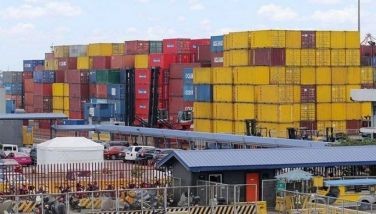Citi sees inflation falling fast with rice tariff cuts

MANILA, Philippines — Global banking giant Citi expects inflation to ease at a faster pace as the government approved the reduction of rice tariff to 15 percent from the current 35 percent until 2028.
Nalin Chutchotitham, economist for the Philippines at Citi, said the rice import tariff cut is one of the new downside risks to inflation.
The National Economic and Development Authority (NEDA) Board chaired by President Marcos approved on June 4 the comprehensive tariff program for 2024 to 2028, which includes a reduction of rice import duty to 15 percent from 35 percent.
“This was a much-awaited change, and could significantly lower inflation significantly once implemented, including indirectly via more food supply stability,” Chutchotitham said.
The NEDA Board also extended until 2028 the reduced tariff rates on corn, pork and deboned meat under Executive Order 50, which were set to expire by the end of the year.
“This could potentially help in stabilizing inflation expectations, in our view, given a longer-term extension versus previous years,” Chutchotitham said.
Headline inflation quickened for the fourth straight month to 3.9 percent in May from 3.8 percent in April. This brought the average inflation to 3.5 percent from January to May, well within the two to four percent target range of the Bangko Sentral ng Pilipinas (BSP).
Chutchotitham said rice inflation’s contribution remained high at two percentage points in May.
“Notably, the NEDA Board has approved the rice tariff reduction from 35 percent to 15 percent through 2028, which could bring down inflation significantly once implemented,” she said.
The economist noted that some upside risks to inflation remain, from potential adjustments of excise taxes and minimum wages.
The global banking giant has highlighted risks from potential larger-than-expected minimum wage hikes in the second half should Congress legislate a wage increase of P100.
Citi is not expecting the BSP Monetary Board to cut interest rates this month as inflation for the bottom 30 percent income households was unchanged at 5.3 percent year-on-year in May, mainly due to high food inflation.
The BSP has emerged as the most aggressive central bank in the region after raising interest rates by 450 basis points from May 2022 to October 2023 to tame inflation and stabilize the peso.
“Hence, we continue to expect the BSP to start cutting policy rates only in August, once inflation has peaked around July,” Chutchotitham said.
- Latest
- Trending

























